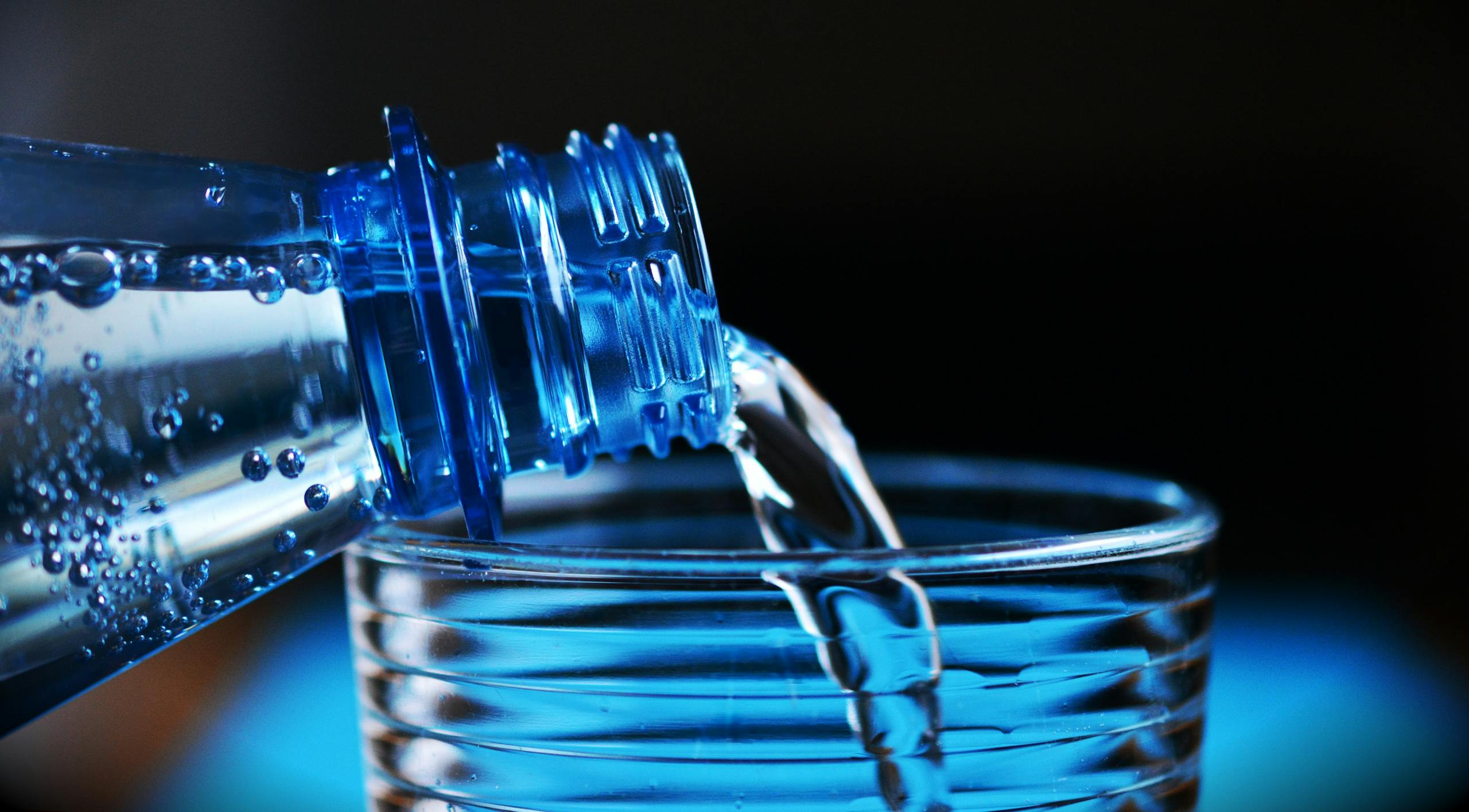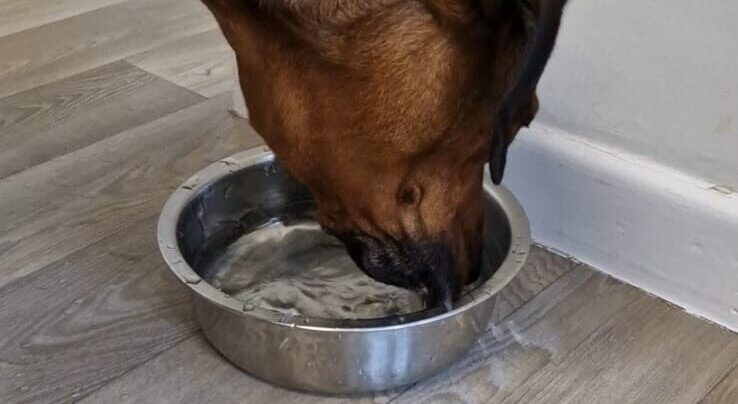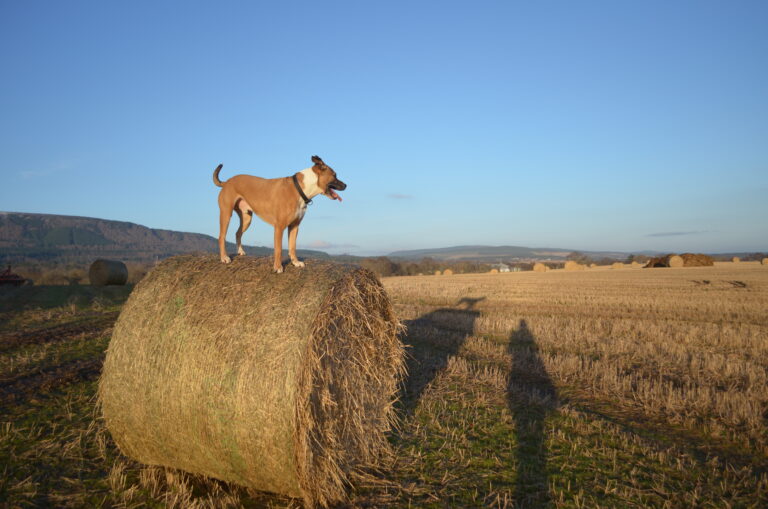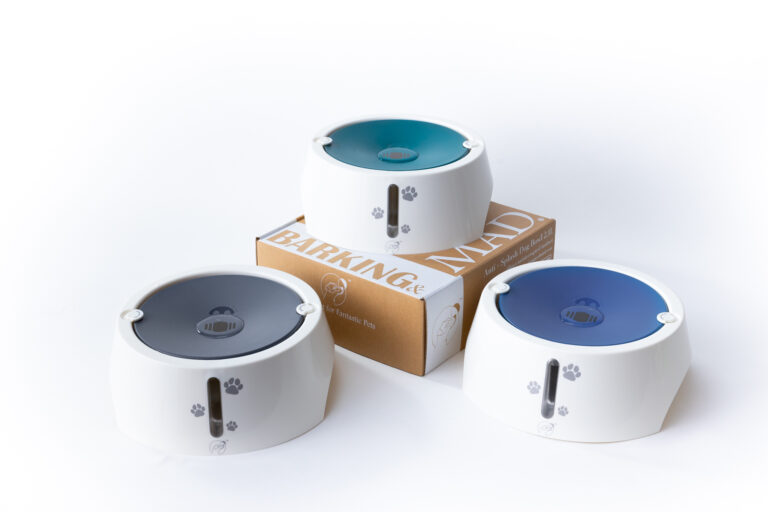Water is a big part of our dog’s life. From keeping them cool in the summer months to making sure their organs work properly, we as pet parents need to give our fur babies the best water. But with so many types of water out there – tap water, bottled water, spring water and yes, even distilled water – it can be hard to figure out what’s best for our dogs.
One of the most common questions dog owners ask is do dogs drink distilled water. You’ve probably heard mixed answers – some say it’s the purest water out there, others say it lacks the minerals a dog’s body needs.
So what’s the truth? Let’s get into the science, health concerns and benefits to find out if drinking distilled water is good for your dog.
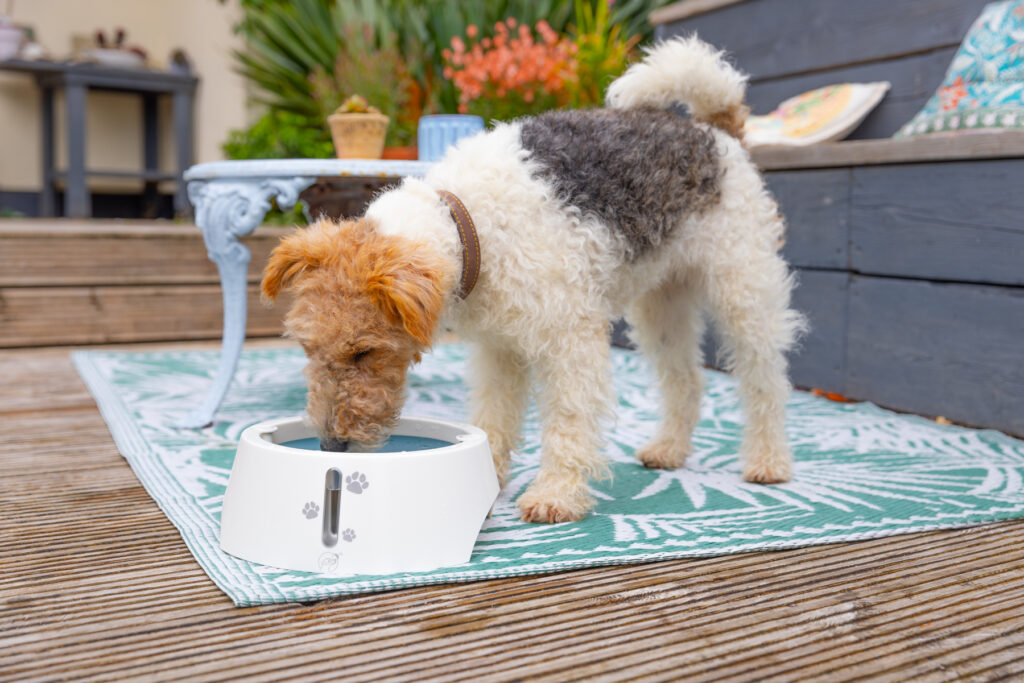
How Much Water Should Your Dog Drink Per Day?
Knowing how much water your dog needs per day is important for their overall health and hydration. It’s a good question as a pet parent. On average, dogs should drink about one ounce of water per pound of body weight per day. So if you have a 50 pound dog they should be drinking about 50 ounces (or about 6 cups) of water a day.
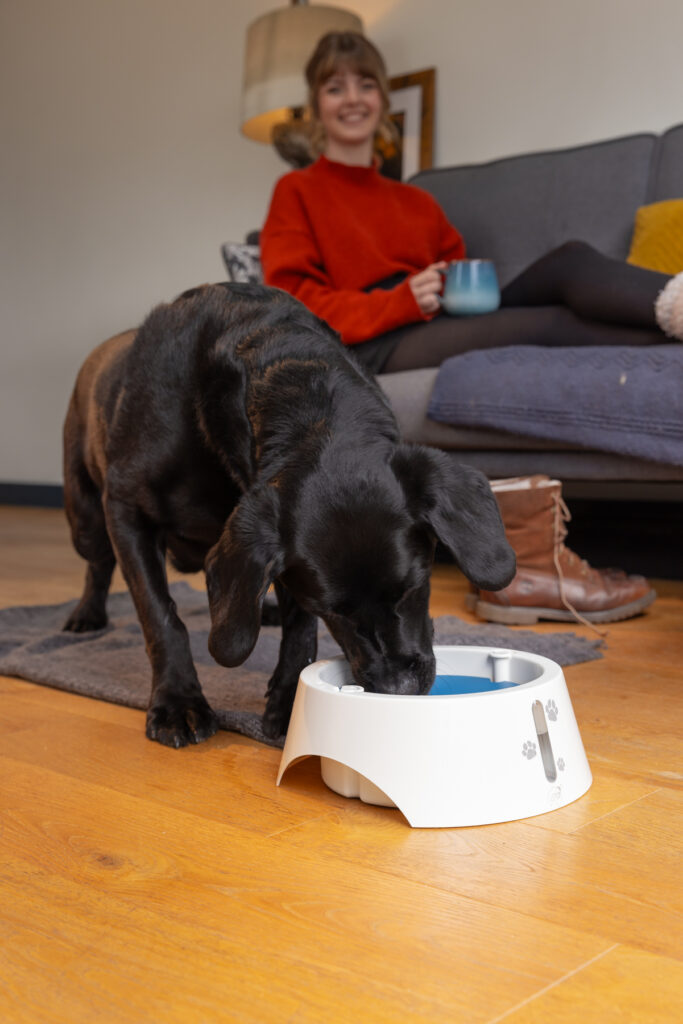
We’ve made this easy by putting water level indicators on our first product to the market, our splashing reducing dog bowl!
BUT not all dogs are the same. There are several factors to consider:
Activity Level: Dogs that are more active or spend more time outside may need more water especially in hot weather or after exercise.
Diet: If your dog eats dry kibble they’ll need more water than a dog on a wet food diet which has more moisture.
Health Conditions: Dogs with certain health conditions like kidney disease or diabetes may need more water. Check with your vet if your dog has any health issues.
Weather: Dogs tend to drink more water in warm weather months when they’re more prone to dehydration.
Make sure your dog has access to fresh water at all times. Keeping an eye on how much your dog is drinking can help you catch any health issues early on. If your dog starts drinking more or less water than usual suddenly, check with your vet.
We have written another useful blog if you think your dog might be drinking excessive water:
What is Distilled Water?
Distilled water is water that has gone through distillation process where it’s boiled and the steam is collected, leaving behind impurities and contaminants like bacteria, heavy metals and chemicals. The end result is pure water, free of toxins but also stripped of natural minerals like calcium and magnesium found in other water sources.
Drinking distilled water might sound great at first glance. You want your dog to drink the cleanest water possible, free from harmful substances. But when water loses its minerals it may longer the best choice for daily hydration.
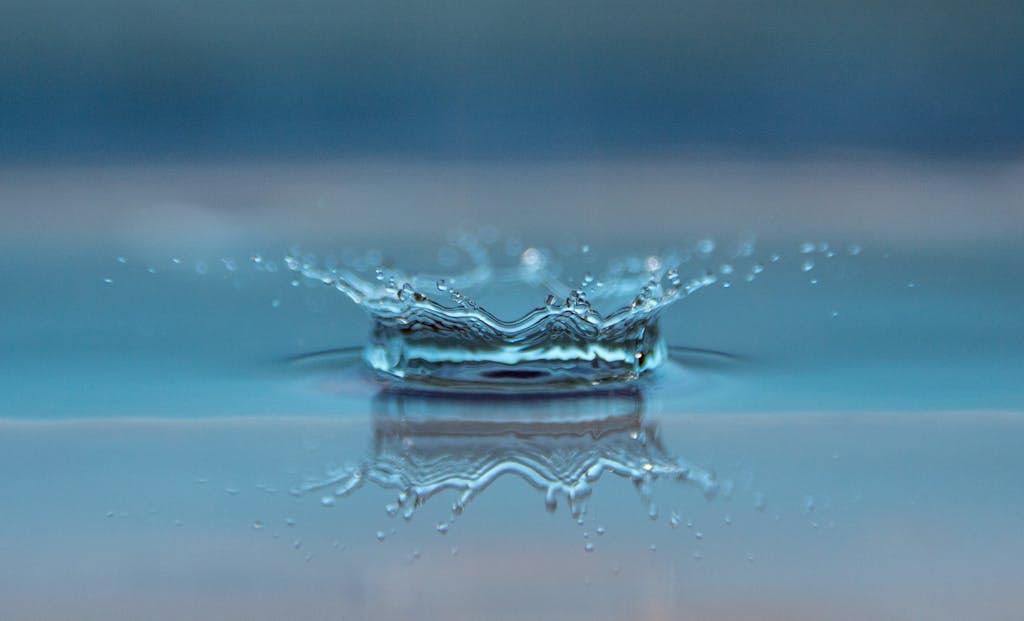
Pros and Cons of Distilled Water for Dogs
Pros:
Cons:
Why Distilled Water May Not Be Good for Dogs
We want to give our dogs the purest water possible but distilled water may not be the best choice for daily hydration. Lack of minerals can leave your dog deficient in essential nutrients over time. Distillation doesn’t mean the water is healthier, it just removes impurities and minerals alike.
Water Is More Than Just A Liquid
Dogs like humans need balanced intake of nutrients. Water is more than just a liquid to quench their thirst – it’s a delivery vehicle for those essential minerals that support their immune system, bone health and other bodily functions.
Alternatives to Distilled Water: What’s Safe for Dogs?
If distilled water isn’t the best option, what should you give your dog? Let’s look at other types of water and their suitability for dogs.
Tap Water
Most dog owners use tap water for their pets but its safety depends on your local water supply. Tap water can have chlorine, fluoride and other chemicals. But in many areas it’s safe for dogs.
Consider using a water filter to remove some contaminants and improve your dog’s drinking water.
Bottled Spring Water
Bottled spring water is marketed as a purer alternative to tap water. It has natural minerals good for dogs and is free of harmful chemicals. If you’re looking for a safer, more natural option than tap water, bottled spring water is a good choice.
Purified Water
Purified water undergoes processes like reverse osmosis to remove contaminants. Unlike distilled water, purified water retains some of the minerals that are good for your dog’s health so it’s a better option than distilled water.
Filtered Water
Installing a water filter at home can remove contaminants from tap water without removing the good minerals. It’s an easy and affordable way to give your dog healthier water.
Well Water
Well water can be very different in quality. Some well water has bacteria or heavy metals like lead which can be bad for dogs. If you use well water, have it tested regularly to make sure it’s safe for your pet.
Toilet Water
Only joking! Pets should never drink from the toilet bowl. If your dog is curious, make sure to keep the lid down. Toilet bowl water can have human waste, chemical cleaners or residues from bathroom products any of which can make your pet sick.
Does Water Quality Really Matter for Your Dog?
Yes. Just like water quality affects humans, it affects your dog’s health too. Poor water quality can cause health issues like gastrointestinal problems, kidney disease and even long term organ damage.
Providing your dog with fresh and clean drinking water helps their body function properly. If water sits stagnant, debris, bacteria and a bunch of other yucky stuff can build up in the bowl. This can lead to future health problems or illness.
Water Quality Matters
Many pet owners have seen improvements in their dog’s health after switching to better water. For example dogs with tear stains or digestive issues may have fewer problems when drinking filtered or bottled spring water which is free from contaminants and chemicals.
Any water is better than no water at all but you’re doing the right thing by researching the best water for your dog so you can make better choices for both of you.
The Difference in Water Types: The Tear Stain Problem
Some owners may have a hard time managing their dog’s tear stains. These dark streaks under the eyes are not only ugly but can be a concern for your dog’s overall health.
Certain kinds of dogs are more susceptible to tear staining such as dogs with white pigment around their eyes and dogs with shallow eye sockets such as Pugs, Poodles, Malteses and Shih Tzu. However, there has been evidence that different types of water makes a difference to tear stain visibility, switching from tap water to filtered water.
This isn’t guaranteed to work for every dog but it shows the connection between water quality and certain health issues in dogs. While distilled water may seem like a cleaner option at first, it’s the minerals and purity in filtered or spring water that makes the difference.

Still Have Questions? You’ve Made It To The FAQ!
Clean, filtered or bottled spring water with natural minerals and no contaminants.
Distilled water may help with tear stains initially by removing contaminants but it lacks essential minerals so filtered or spring water is a better long term solution.
Distilled water is not recommended because it lacks essential minerals that are good for your dog’s health and may increase their thirst.
Yes, bottled spring water is safe for dogs and has beneficial minerals.
Smartwater, a brand of purified water with added electrolytes, is safe for pets but regular filtered water or spring water is often more natural.
Purified water is better than distilled water because it has some beneficial minerals.
Spring water is better for dogs as it has natural minerals but filtered tap water is also good.
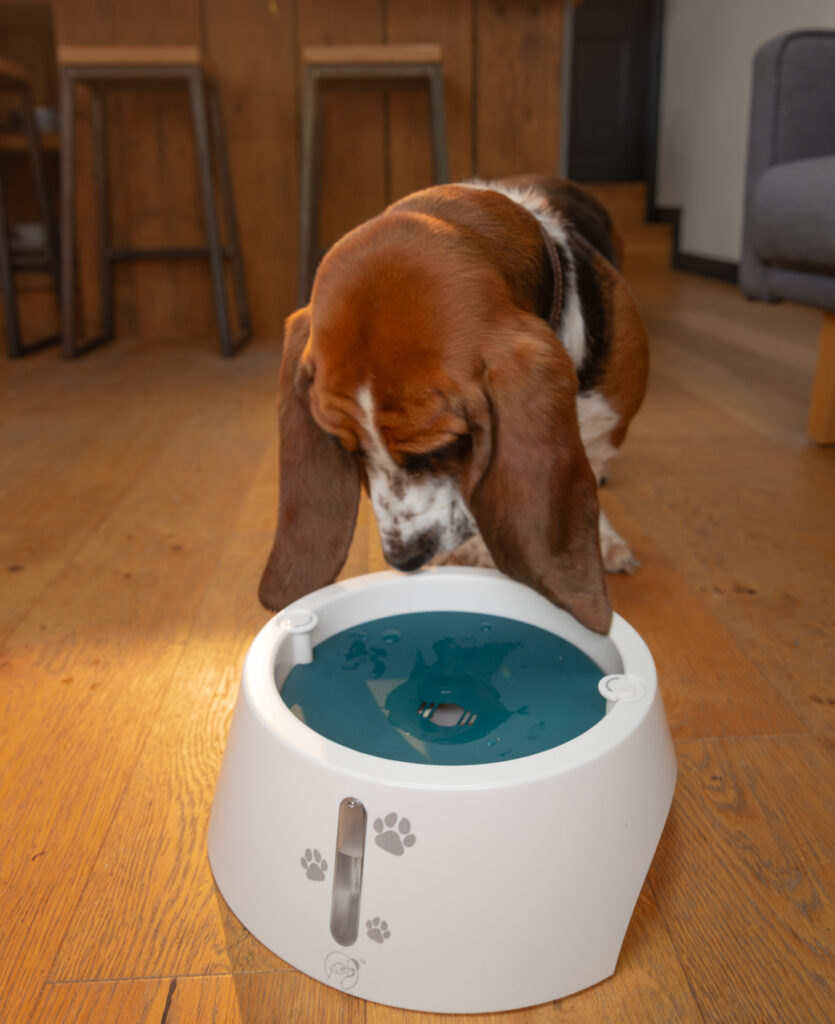
The End Part
In summary, distilled water may be free of impurities but it’s not the best for your dog. Lack of essential minerals can lead to deficiencies over time and increased thirst can disrupt your dog’s natural hydration balance.
Filtered water or bottled spring water is a better balance of purity and minerals for your dog’s overall health.
Remember, water quality matters for your dog’s well-being. Give them clean mineral rich water and you’ll maintain their immune system, digestive health and energy levels. And don’t forget – having fresh water available to your dog at all times is one of the simplest but most important things you can do to keep them happy and healthy!

